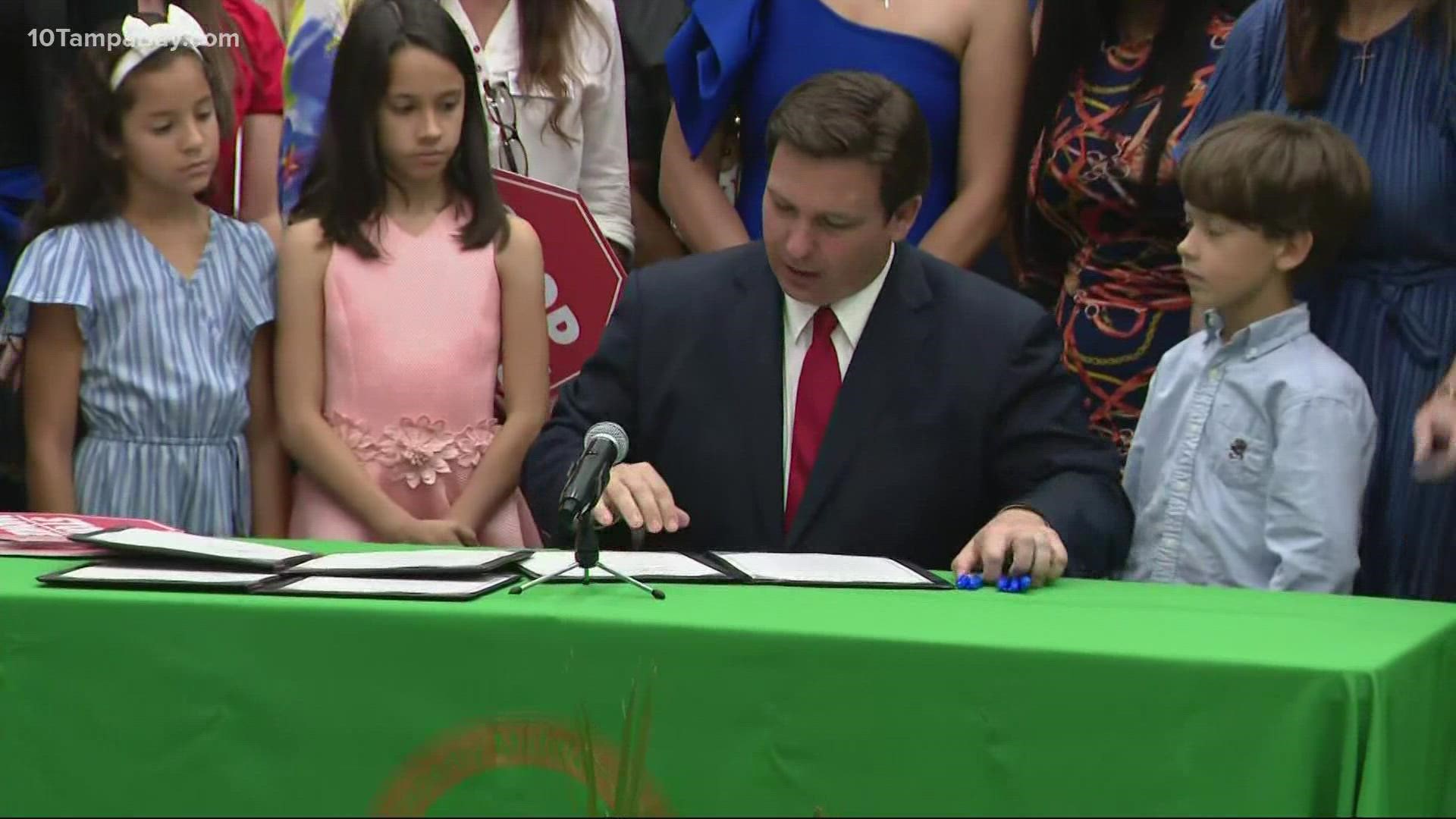HIALEAH GARDENS, Fla. — With the flick of his pen, Gov. Ron DeSantis signed HB 7 – known as the “Individual Freedom” bill – into law Friday, banning school lessons or workplace training that could make participants feel discomfort or guilt.
The bill bars any teachings or workplace trainings that “espouses, promotes, advances, inculcates, or compels” someone to believe a particular race or sex is morally superior, or an individual can be inherently racist or sexist.
“We’re here today because we believe in education, not indoctrination," DeSantis said at a press conference Friday in Hialeah Gardens.
It also targets the teachings of critical race theory in Florida classrooms.
"We believe an important component of freedom in the state of Florida is the freedom from having oppressive ideologies opposed upon you without your consent whether it be in the classroom or whether it be in the workplace," DeSantis added.
Critical race theory, or CRT, is defined by Meriam-Webster as “a group of concepts used for examining the relationship between race and the laws and legal institutions of a country and especially the United States.”
The theory is not taught in Florida schools at any grade level right now. According to the bill's analysis, it would prevent CRT from being taught in order to block what is classified as a distortion of historical events that are inconsistent with State Board of Education guidelines.
"We are not going to use your tax dollars to teach our kids to hate this country or to hate each other," DeSantis said.
The Florida Education Association teachers union said the law is "based on a manufactured political narrative" that doesn't face the real "critical" issue: making sure there are enough teachers, bus drivers, custodians and food-service workers.
"No matter where we live or what we look like, we all want what’s best for our kids. Parents and educators want to help students grow into well-informed, successful adults who are equipped to think for themselves. The full, fair facts of history are part of a high-quality education," FEA President Andrew Spar said in a statement. "For students to learn anything, however, we need to address the 9,000 projected teacher vacancies and more than 5,000 current vacancies for support staff in our public schools."

